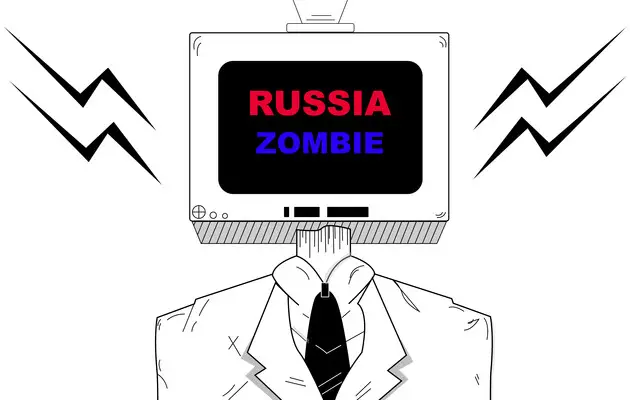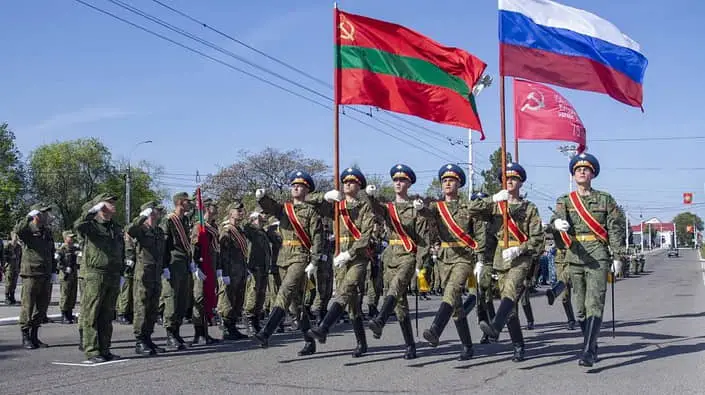russian propaganda has intensified on the eve of the European Parliament elections. What is the kremlin's goal in these elections?

What narratives does moscow want to promote in the EU's information space and what consequences will this have?
The European Parliament elections will take place in June, and they will certainly be in the crosshairs of russian propaganda. In recent years, russia has been actively using social media and other channels to spread fake news to interfere in political processes in Europe. DHN analyzed what consequences this will have for politics in the region.
The French Minister for EU Affairs noted that almost all EU countries are targeted by pro-russian online propaganda before the upcoming parliamentary elections scheduled for early June. According to him, the French government's efforts to counter foreign interference and disinformation have led to the discovery of 31 new websites spreading pro-kremlin propaganda across Europe. This is in addition to the 193 domains already identified.
The French Ministry of Foreign Affairs reported that twenty-five of the 27 EU member states have been targeted in recent months. Jean-Noël Barrot said that these online operations are intended to destabilize public opinion before the vote.
During a press conference outside Paris with his German and Polish counterparts, Barrot called on social platforms to block websites that "participate in foreign interference operations". A joint statement by the three ministers noted that "2024 is a year of major elections in Europe and beyond", and emphasized that "we will not allow any attempt to interfere in our democratic processes".
French officials warn that russia is using online disinformation campaigns to advance its interests and undermine international support for Ukraine. President Emmanuel Macron, who has hardened his stance against moscow, has recently stepped up measures to counter russian propaganda.

In its propaganda, russia will focus on spreading Eurosceptic and far-right narratives
In recent years, in the context of the pandemic, economic instability and the conflict in Ukraine, populists and Eurosceptics have seen a rise in popularity in Europe. During this period, support for Eurosceptic parties has grown significantly, and they are projected to win a quarter of the seats in the European Parliament.
Often, it is populists who promote the idea of ending support for Ukraine and developing relations with the aggressor. russia is actively using the extreme right and left in the EU to destabilize the European Union. russian information forces often help these forces to come to power, including by spreading disinformation within the EU. Eurosceptics, in particular, often spread false information about the European Union.
In early April, Eurosceptic Peter Pellegrini won the second round of the presidential election in Slovakia, receiving 53.12% of the vote after processing all 100% of the ballots. Pellegrini expresses support for the Slovak government's position on standardizing relations with russia, which have changed dramatically since russia's invasion of Ukraine. He believes that sanctions against Moscow are ineffective in most cases and have a negative impact on the people of Slovakia. A few days before the second round, Pellegrini's Voice party widely circulated an image of an elderly woman hugging a military man with the caption: "Come out and vote. Don't let your Slovak sons and grandsons die in the war".
Thus, Eurosceptics tried to create the impression that pro-European politicians could drag Slovakia into the conflict between russia and Ukraine, although this was pure manipulation, since the Constitution does not give the president authority over war and military operations abroad. However, some European politicians are ready to promote manipulation and propaganda in order to gain political points.

How the EU is fighting this
The European Parliament called on the leadership of the European Union and its Member States to confront russian interference attempts with determination and urgency.
The European Parliament expressed concern about the information that some of its members were remunerated for spreading russian propaganda and participated in the activities of the pro-russian media outlet Voice of Europe, associated with Ukrainian ex-MP Viktor Medvedchuk. The European Parliament also demands that the leadership of the European Union and its member states carefully consider russia's efforts to interfere not only with EU institutions, but also with the processes of the entire Union. This is especially important before the European elections scheduled for June 6-9.
In addition, the European Parliament expressed concern over the arrest in Germany of an aide to the far-right MEP Maximilian Krah on charges of spying for China. The European Parliament called on the Alternative for Germany party to immediately disclose its financial relations, especially with the kremlin, and to disclose the purpose and amount of all payments coming from kremlin-related sources.
MEPs emphasized that while russia remains the main source of foreign interference and disinformation in the EU, other countries are also active. To strengthen their own defenses, MEPs propose in the resolution to improve the culture of internal security, in particular by conducting thorough internal investigations to identify possible cases of foreign interference and enforcing the system of internal sanctions. The European Parliament also calls for mandatory security training for its members and staff, as well as increased vetting of staff.
The resolution also calls on the EU Council to include in the upcoming 14th package of sanctions against russia the media supported by moscow, other broadcasting and media organizations, as well as individuals responsible for propaganda and disinformation campaigns in the EU.
These measures are likely to help reduce russia's influence on political parties in the EU and minimize the impact of russian propaganda on elections, and the dominance of traditional conservatives (European People's Party) and social democrats in the European Parliament will continue. However, the Liberals (Renew Europe) and Greens factions may shrink after the elections, and their seats may be taken by far-right and Eurosceptics.










